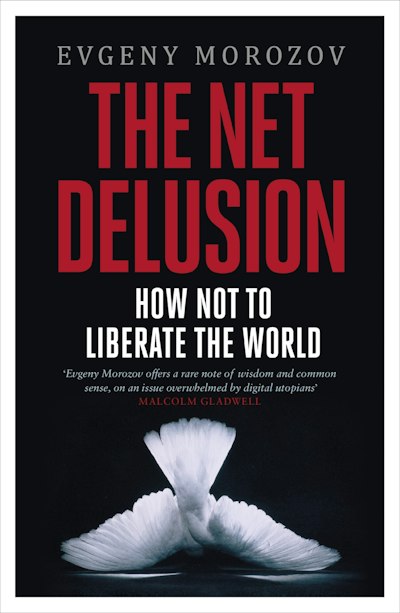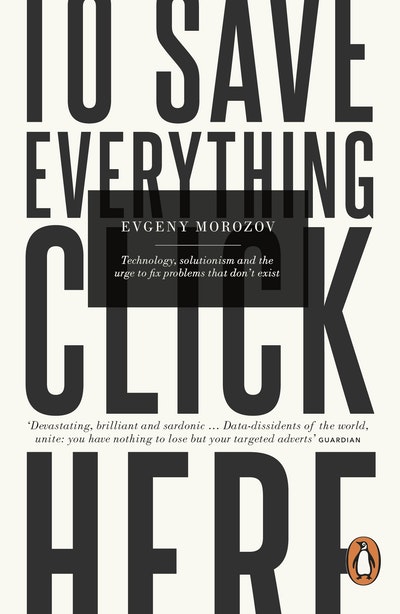The Net Delusion
How Not to Liberate The World
- Published: 7 February 2011
- ISBN: 9780141961828
- Imprint: Penguin eBooks
- Format: EBook
- Pages: 432
Evgeny Morozov offers a rare note of wisdom and common sense, on an issue overwhelmed by digital utopians
MALCOLM GLADWELL
Gleefully iconoclastic ... not just unfailingly readable: it is also a provocative, enlightening and welcome riposte to the cyber-utopian worldview.
The Economist
A delight ... his demolition job on the embarrassments of "internet freedom" is comprehensive ... as we go down the rabbit-hole of WikiLeaks, Morozov's humane and rational lantern will help us land without breaking our legs.
Pat Kane, The Independent
A passionate and heavily researched account of the case against the cyber-utopians ... only by becoming "cyber-realists" can we hope to make humane and effective policy.
Bryan Appleyard, New Statesman
Evgeny Morozov is wonderfully knowledgeable about the Internet-he seems to have studied every use of it, or every political use, in every country in the world (and to have read all the posts). And he is wonderfully sophisticated and tough-minded about politics. This is a rare combination, and it makes for a powerful argument against the latest versions of technological romanticism. His book should be required reading for every political activist who hopes to change the world on the Internet.
Michael Walzer, Institute for Advanced Study, Princeton
The Net Delusion is considerably more than an assault on political rhetoric ... a war against complacency.
Tom Chatfield, Observer
Required reading for all ... a compelling primer and rebuff to the "cyber utopians" ... trenchant and persuasive.
John Kampfner, Sunday Times
Lively and combative ... dauntingly well-informed ... injects a welcome dose of common sense into an issue that has been absurdly lacking in it.
John Preston, Sunday Telegraph
Piercing...convincing...timely.
Ben Hammersley, Financial Times
[M]ore than rewards a respectful reading, not only for the author's impressive knowledge of the internet toolbox...but because of his ability to relate such technological gadgetry to the increasing challenges that are being posed to entrenched authoritarianism
James M Murphy, Times Literary Supplement
Selected by the New York Times as one of the 100 Notable Books of 2011
New York Times


